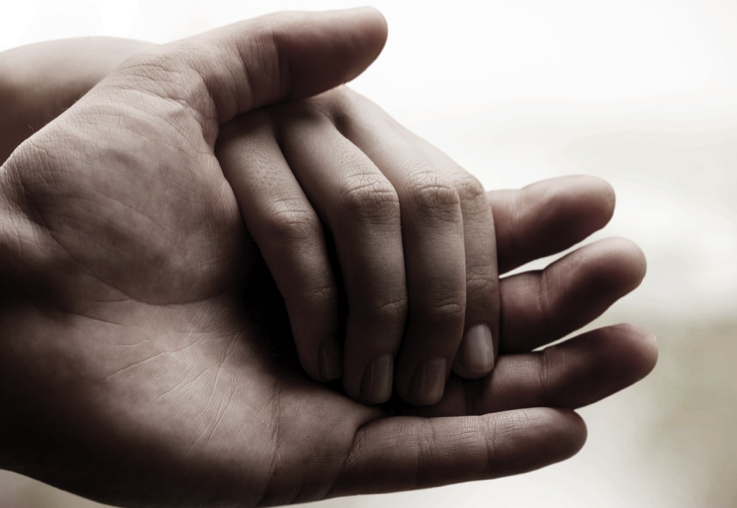When faced with someone else’s grief, it is common to feel awkward and unsure about what to say. You may even internally question, “What could I possibly say? What if I say the wrong thing? What if they break down in front of me?”
The reality is we live in a Western world that lacks openness and discourages vulnerability. Particularly in Australia, our culture of bravado encourages us to ‘get on with it’ and have a ‘stiff upper lip’. The ‘Aussie Battler’ label does not give emotional or spiritual support to those grieving.
This leaves many of us unprepared for how to give support to those going through the grieving process. Whether it’s a friend, family member or colleague, everyone, at some stage, will grieve.
Grief is not restricted to the death of a person, but extends to the physical upheaval of leaving a home or school, leaving or losing a job, facing health issues, or retirement.
The five stages of grief
There are five recognised stages to the grieving process: Denial, Anger, Bargaining, Depression, and Acceptance. However, it is imperative that the stages be recognised individually, as stages aren’t necessarily experienced in any particular order, or in only one way or one time.
By understanding these stages we can better learn how to support other’s grief and avoid those feelings of uncertainty about what to do or what to say to someone who is grieving.
- Denial
Denying loss is nature’s method of allowing in only as much as you can cope with at the time. Numb and in shock from what could be an unexpected loss, denial allows for the feelings of grief to be put on hold. As each new day dawns, denial can help pace your feelings.
- Anger
Truly feeling the anger that comes after a loss enables the healing process to begin, even as the anger is often directed towards those around you and potentially those similarly affected by the loss. The anger is an indication of the love you feel, and this anger may become a structure, a connection which once again links you to that which you have lost.
- Bargaining
Bargaining after a loss often starts a stream of statements beginning with ‘what if’ and ‘if only’, as you try to negotiate away from the reality of the situation. The guilt of the action or inaction of the past drives the need to negotiate for the pain to numb, to remain caught in the past away from the pain and the reality of the present.
- Depression
Back in the present, depression makes grief more deeply felt – it is an appropriate reaction to an immense loss, and the depression felt in grief is not a sign of mental illness. Depression, as an expression of grief, is a step within the process of healing.
- Acceptance
Acceptance is about acknowledging the reality of a physical or emotional loss, and accepting a new reality in the face of what has been lost and grieved for. Trying to maintain a way of life as it was before the loss will inevitably allow bits and pieces of acceptance through, to reveal that life post loss will forever be changed.
Simple tips to better support those experiencing grief
- Acknowledge their loss. Be present and there for them. It is common for people to not know what to say, but do not avoid your loved one at this time, and don’t worry so much about words, because words are not the tonic. What they really want at this time is your presence and acknowledgement.
- Helping them maintain everyday routines, such as meals and cleaning the house, can be a humble and practical way help to ease their difficulty in a time of grief. It’s these everyday tasks that are the first to go out the window, particularly when shock sets in during the first stage of grief.
- Fewer words is often best. Words of ‘intended consolation’ can often be destructive in the face of how grief is felt individually. Phrases such as “I understand how you are feeling” or “Time will heal” can be more detrimental than beneficial. Say less and just be there with warmth and spirit.
There is no best way to grieve, but there is healthy and unhealthy grieving. Healthy grieving can be supported by loved ones who openly show acknowledgment, practical support and few words. Be aware of anyone in your life experiencing grief and understand that even though the pain may diminish over time, the grief may never go away.
SHARE your thoughts with us in the comments below.
Main image courtesy of Shutterstock.com




















-

-
-
Ellen said
- 26 Dec 2017

-

-
-
coastalkaryn said
- 14 Feb 2016
-

-
-
mom165608 said
- 08 Jan 2016
-

-
-
aprilb1 said
- 27 Dec 2015
-

-
-
BellaB said
- 26 Dec 2015
-

-
-
mom74640 said
- 23 Dec 2015

-

-
-
mum4107 said
- 23 Dec 2015
-

-
-
mom94125 said
- 22 Dec 2015
-

-
-
mom101628 said
- 22 Dec 2015
-

-
-
rachelvk said
- 22 Dec 2015
-

-
-
Nas01 said
- 22 Dec 2015
-

-
-
mom90758 said
- 22 Dec 2015
-

-
-
mom93821 said
- 22 Dec 2015
-

-
-
mom160421 said
- 22 Dec 2015
Post a comment9:26 am
6:19 pm
8:42 pm
-

-
-
Threelos replied
- 31 Jan 2016 , 8:56 pm
Reply9:47 pm
8:17 pm
12:15 pm
4:33 am
11:50 pm
10:08 pm
9:07 pm
7:30 pm
7:04 pm
-

-
-
mom93821 replied
- 23 Dec 2015 , 6:11 am
Reply6:36 pm
6:20 pm
To post a review/comment please join us or login so we can allocate your points.